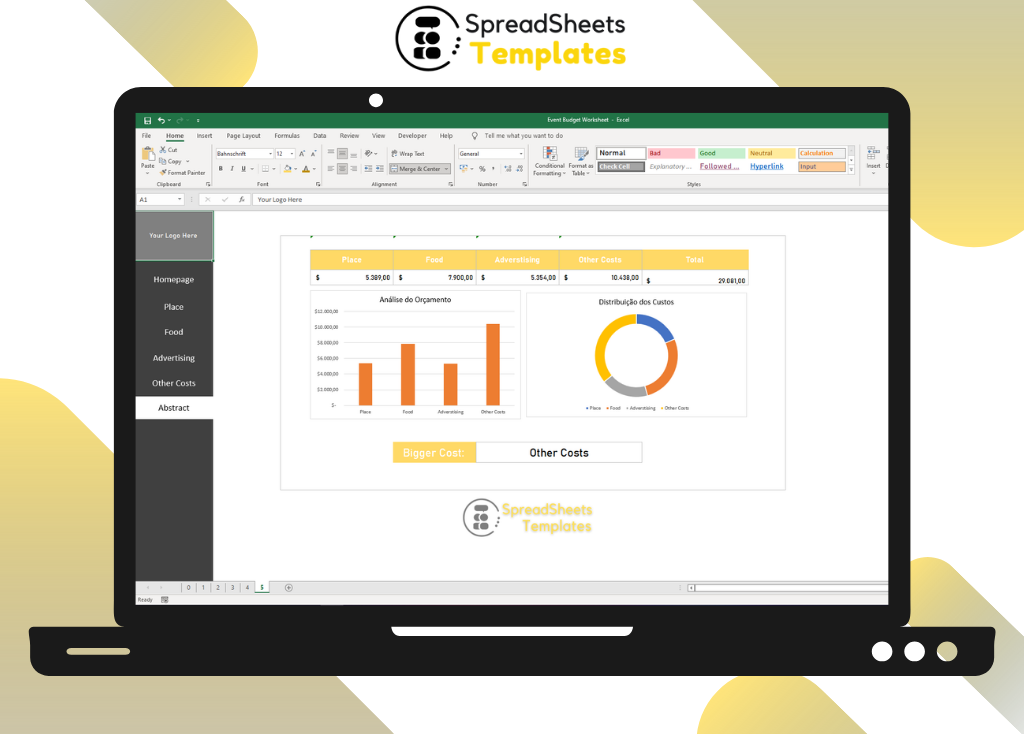Event Budget Worksheet Leave a comment
Your Comprehensive Guide to Effective Event Planning
Introduction
Planning an event can be an exciting yet challenging endeavor. Whether you’re organizing a corporate conference, a wedding reception, or a charity fundraiser, one crucial aspect that can make or break your event is the budget. Proper budget management ensures that you allocate your resources effectively, keeping costs in check while delivering a memorable experience. In this comprehensive guide, we will walk you through the process of creating an event budget worksheet, offering valuable insights, tips, and strategies to help you plan your event successfully.
Event Budget Worksheet: The Key to Event Planning Success
Creating an event budget worksheet is an essential step in the event planning process. It serves as a roadmap, allowing you to visualize and allocate funds to various aspects of your event. From venue selection to catering, decorations, entertainment, and marketing, a well-structured budget worksheet helps you stay organized and ensures you don’t overspend or overlook critical expenses.
Why Do You Need an Event Budget Worksheet?
An event budget worksheet provides several benefits, including:
- Financial Control: With a budget worksheet in place, you can track your expenses and maintain financial control throughout the planning process. It helps you make informed decisions and prioritize your spending based on the allocated budget.
- Resource Allocation: A budget worksheet allows you to allocate your resources effectively. By having a clear overview of your financial commitments, you can distribute funds to different areas of the event and avoid overspending in a single category.
- Cost Monitoring: Regularly monitoring your expenses against the budget helps you identify areas where you may be exceeding your planned spending. This allows you to make timely adjustments, ensuring you stay within your financial limits.
- Vendor Negotiations: A budget worksheet serves as a useful tool during vendor negotiations. By knowing your budget constraints upfront, you can negotiate better deals and select vendors that offer the best value for your money.
Components of an Effective Event Budget Worksheet
A well-structured event budget worksheet should include the following components:
- Income: Start by listing all the sources of income for your event. This may include ticket sales, sponsorships, grants, or donations. Make sure to specify the expected amount for each income source.
- Expenses: Create categories for your expenses, such as venue, catering, decorations, audiovisual equipment, marketing, and staff. Break down each category into specific line items to ensure comprehensive coverage.
- Estimates: Research and estimate the costs associated with each expense category. Be thorough and realistic in your estimations to avoid any surprises down the line. It’s better to slightly overestimate than underestimate.
- Actual Costs: As you make payments and incur expenses, record the actual costs in your worksheet. This will help you track any variations from the estimates and make adjustments accordingly.
- Running Total: Maintain a running total of your expenses to have a clear picture of your budget’s status at any given point. This will enable you to identify areas where you may need to cut costs or reallocate funds.
- Contingency Fund: It’s always wise to include a contingency fund in your budget worksheet. This serves as a buffer for unexpected expenses or emergencies that may arise during the planning process.
FAQ
1. What are the essential elements to consider when creating an event budget worksheet?
When creating an event budget worksheet, you should consider the following elements:
- Venue expenses, including rental fees, setup, and cleaning costs.
- Food and beverage costs, such as catering services and bar arrangements.
- Audiovisual and technical equipment rentals.
- Decorations and event signage expenses.
- Marketing and promotional materials.
- Staffing and personnel expenses.
- Entertainment and speakers’ fees.
- Transportation and logistics.
- Contingency fund for unforeseen expenses.
2. How can I ensure that my event stays within the allocated budget?
To ensure your event stays within the allocated budget:
- Regularly monitor your expenses against the budget.
- Look for areas where you can cut costs without compromising the quality of the event.
- Consider negotiating with vendors to secure better deals.
- Prioritize spending based on the event’s goals and objectives.
- Maintain open communication with your team and stakeholders regarding budget constraints.
3. What are some cost-saving tips for event planning?
To save costs during event planning:
- Explore alternative venue options that may offer more affordable rates.
- Consider hosting the event during off-peak seasons or weekdays.
- Opt for buffet-style catering instead of plated meals.
- Utilize in-house audiovisual equipment or negotiate rental fees.
- Leverage digital marketing and social media platforms for cost-effective promotion.
- Seek sponsorship or partnerships to offset expenses.
- Prioritize essential elements and consider cutting back on non-essential items.
4. How can a contingency fund help in event planning?
A contingency fund acts as a safety net in event planning. It allows you to handle unforeseen expenses or emergencies without derailing your budget. By including a contingency fund in your event budget worksheet, you can avoid financial stress and maintain the smooth execution of your event.
5. What are the consequences of not having a well-planned event budget?
Not having a well-planned event budget can lead to several consequences, including:
- Overspending and exceeding your financial limits.
- Inadequate resource allocation, resulting in compromised event quality.
- Difficulties in tracking expenses and financial control.
- Limited negotiation power with vendors due to unclear budget constraints.
- Increased stress and last-minute scrambling to cover unexpected expenses.
6. How often should I update my event budget worksheet?
It’s essential to update your event budget worksheet regularly throughout the planning process. Aim to review and adjust your budget on a weekly or bi-weekly basis, depending on the event’s timeline. This ensures that you have an accurate and up-to-date representation of your expenses and financial status.
Conclusion
Planning and executing a successful event requires careful budget management. By creating an event budget worksheet and following the strategies outlined in this comprehensive guide, you can optimize your financial resources, maintain control over expenses, and deliver a memorable event within your allocated budget. Remember, effective budgeting is the key to a successful event planning journey.


